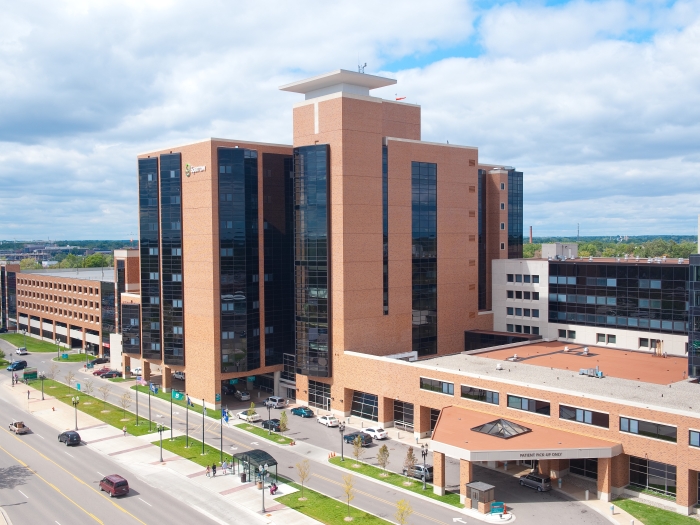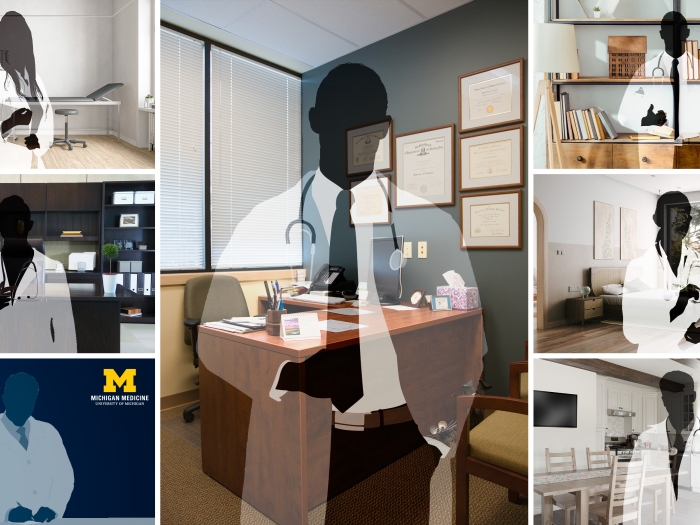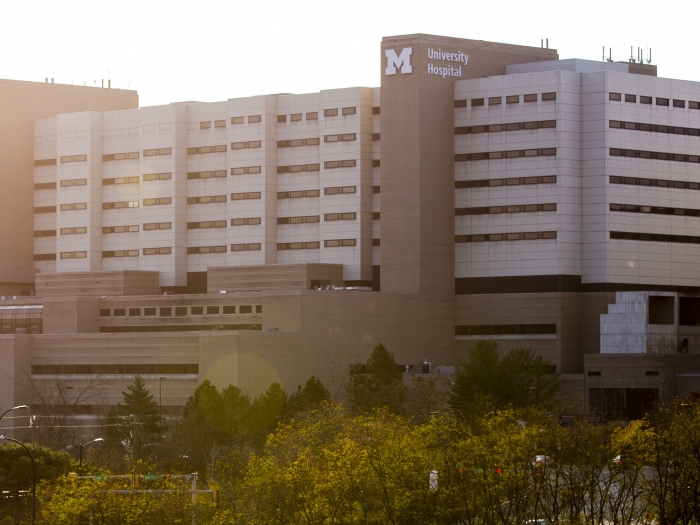Diverse class of 169 future health leaders will start their studies with Sunday’s White Coat Ceremony
Author |
On Sunday, the newest students will arrive at one of the nation’s oldest medical schools, and don the white coats that mark the start of their journey toward becoming physicians.
A new element awaits this year’s class of 169 incoming University of Michigan Medical School students during the annual White Coat Ceremony: a new oath that focuses on the elements of “humanism” that can get lost in modern medicine.
At the ceremony in U-M’s Hill Auditorium, the students will take the new U-M Medical School White Coat Pledge, created by members of the school’s chapter of the Gold Humanism Honor Society. The society is named for Arnold P. Gold, M.D., a leader in ensuring that health care providers receive training in providing compassionate, patient-centered care. The White Coat Ceremony itself is a tradition started decades ago by Gold.
The new U-M medical students come to Michigan from 30 states, and nearly half are Michigan residents. One in five members of the class comes from groups that are traditionally underrepresented in medicine.
Led by members of this year’s graduating class who have been elected to the honor society, each of them will pledge the following:
- I will listen to each patient’s unique human story.
- I will mind my biases and treat every patient with compassion.
- I will assume the best in others and be kind.
- I will support my colleagues as we join to care for patients.
- I will appreciate my opportunities in this profession and advance them for all who follow.
- I will care for myself as I care for my patients.
- I will forgive myself for my mistakes and learn from them.
- I will strive for excellence while being mindful of my limits and those of medicine.
“Attention to the human elements of caring for patients should always be as much a part of being a physician as harnessing the most advanced knowledge and technology,” says Rajesh Mangrulkar, M.D., associate dean for medical student education. “This new pledge crystallizes that commitment, and asks our new students to internalize it from the moment they begin their training.”
Mangrulkar notes that the school’s curriculum, fully implemented over the past three years, affords many opportunities to explore the human aspects of medicine. All students will complete a Capstone for Impact project before they graduate – a student-led initiative to move medicine forward and make an impact on a major challenge in health care and health system delivery, with patients in mind.
U-M also makes the humanity of the provider a central focus of its medical training. All medical students have opportunities to learn together with students studying nursing, dentistry, public health, pharmacy and other fields at U-M’s health professions schools and colleges.
They can participate in the Medical Arts Program, the Medical Humanities Path of Excellence, and also be part of the Healer’s Arts curriculum. Each student will also participate in an initiative called M-Home, belonging to one of four “houses” that will serve as a connecting force in his or her medical school experience. Each house will offer community, support, small-group learning, well-being, service and mentoring opportunities within the school.
More facts about this year’s incoming class:
- 7,533 people applied for a spot in this year’s class, an eight percent rise over last year. Only 445 made it to the interview stage – which was an even more selective round than last year.
- Nearly 65 percent of the students identify as female
- 47 of the students attended U-M as undergraduates, with the rest graduating from 14 other Michigan institutions and 66 out-of-state institutions.
- After Michigan, the state sending the most students to U-M for this year’s class is California, with 17, followed by Illinois and Maryland with eight students each.
- Nearly 20 percent majored in a field outside of the STEM (science, technology, engineering and mathematics) degrees that are often traditional paths to medical degrees.
- Ten students will pursue both an M.D. and Ph.D. degree through the Medical Scientist Training Program. Additionally, three students who already hold dental degrees will train in oral & maxillofacial surgery. Many others may choose to pursue a second degree at other U-M schools, through any one of the dual-degree programs open to medical students.
- The students’ average age at matriculation is 24 years. Just over half of them are two years or more removed from graduating with their undergraduate degrees.
- 51 percent have been authors on academic papers before entering medical school; 16 percent have been first authors.

Department of Communication at Michigan Medicine





